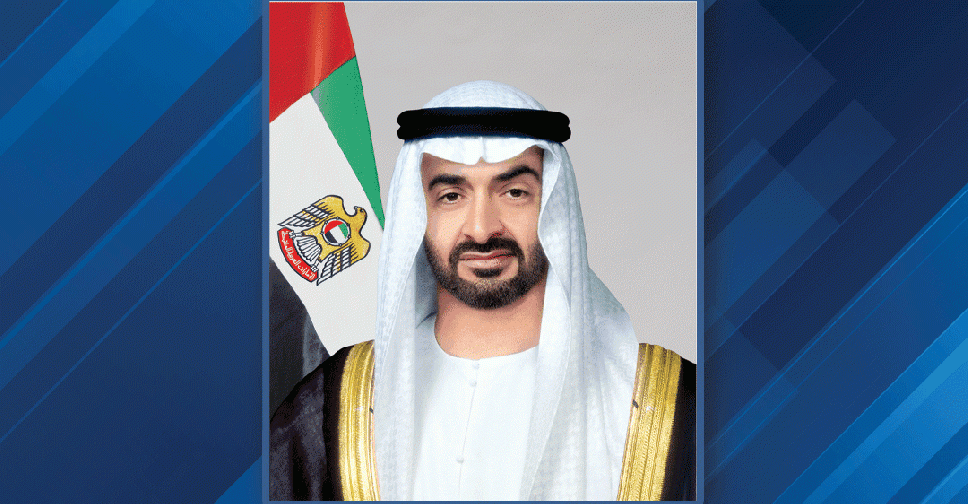Title: A Compassionate Gesture: UAE President Orders Release of 963 Inmates Ahead of Eid Al Adha
Date: Tuesday, 3 June 2025
By ARN
In a heartwarming gesture embodying the principles of forgiveness and compassion, His Highness Sheikh Mohamed bin Zayed Al Nahyan, the President of the United Arab Emirates, has announced the release of 963 inmates in advance of the auspicious occasion of Eid Al Adha. This initiative is not merely a routine practice; it is a profound recognition of the human spirit and the importance of second chances in an individual’s journey towards rehabilitation and reintegration into society.
The President’s directive is underscored by a commitment to address any financial obligations that may have arisen in the context of the inmates’ sentences, illustrating a holistic approach to justice that extends beyond punitive measures. By alleviating the financial responsibilities tied to their consequences, Sheikh Mohamed is providing the released individuals with a fresh start, allowing them to focus on rebuilding their lives without the burden of outstanding debts or fines that could hinder their reintegration into the community.
Eid Al Adha, known as the “Festival of Sacrifice,” is a time marked by reflection and generosity. Traditionally celebrated during the Islamic month of Dhul Hijjah, it honors the willingness of Prophet Ibrahim (Abraham) to sacrifice his son in obedience to God. In this spirit of selflessness, Sheikh Mohamed’s decision resonates deeply with the core values of the occasion—reinforcing family ties and fostering a sense of community solidarity.
This is not the first time Sheikh Mohamed has extended such goodwill towards incarcerated individuals. Earlier this year, ahead of Ramadan—a month known for its emphasis on compassion and charity—he ordered the release of 1,295 inmates. This repetitive act of clemency underscores a broader governmental strategy focused on the rehabilitation of offenders and their reintegration into society. It reflects the UAE’s commitment to promoting an environment that nurtures familial bonds and societal harmony.
Beyond the immediate impact on the lives of those released, such initiatives serve to remind the broader community of the significance of forgiveness. By emphasizing the importance of compassion, Sheikh Mohamed is advocating for societal values that uphold dignity and humanity, essential components for building a cohesive and supportive community.
This approach aligns with the UAE’s broader vision for the future—a vision that prioritizes social welfare and the well-being of all citizens. As the nation continues to evolve in its infrastructural and economic endeavors, the importance of social cohesion cannot be overlooked. Initiatives like these signal a progressive mindset that recognizes the need for transformative justice over mere punitive measures.
Moreover, as the UAE prepares for a future brimming with potential, the reintegration of former inmates plays a critical role in achieving a balanced and harmonious society. Successful reintegration programs must be built on principles of support, guidance, and opportunities for personal development. The UAE government’s commitment to facilitating pathways to employment, education, and community engagement for this population is crucial in reducing recidivism rates and fostering a culture of accountability and self-improvement.
The narrative surrounding incarceration in the UAE, and indeed globally, is often fraught with stigmas that isolate individuals who have served their time. By publicly acknowledging the significance of second chances, Sheikh Mohamed’s actions could encourage communities to embrace released individuals and support their reintegration, ultimately fostering a more inclusive society.
As we approach Eid Al Adha, this act of clemency is a timely reminder of the values that bind us together as a society—compassion, forgiveness, and a commitment to doing better for ourselves and our neighbors. As families reunite in celebration, it is hoped that these newly liberated individuals can forge new beginnings against the backdrop of benevolence that characterizes this holy festival.
In conclusion, Sheikh Mohamed bin Zayed Al Nahyan’s directive to release 963 inmates is not merely a procedural gesture but a profound commitment to social rehabilitation and healing. This act of kindness encapsulates the essence of the Islamic faith and serves as an enduring reminder of the transformative power of forgiveness in society.
Tags: #UAE, #PeopleCultureNews, #EconomyNews

